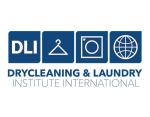CHICAGO — When a fire destroyed a main plant and two stores, Carlyn Parker, director of operations at Dependable Cleaners, based in the greater Boston area, discovered the value of the relationships her business had built with its suppliers, who rallied to get her business back up and running. Parker and her team proved that the time spent in forging close bonds with those suppliers was an investment — one that paid off when she needed them the most, and one that serves as a lesson to other cleaners.
In Part 1 of this series, we explored the differences in simple transactional relationships and deeper rapports with suppliers. Today, we’ll look at some of the lessons the pandemic taught, as well as red flags to look for when judging the health of the relationships between cleaners and suppliers.
Getting Through Tough Times
While the fire at Dependable Cleaners was an extreme situation that tested the bonds of business partnerships, the pandemic brought these partnerships into a new light for many cleaners.
“I heard about a lot of dry cleaners who were having trouble getting hangers and other supplies because they didn’t have a relationship with the vendor,” Parker says. “The vendors were holding supplies for their clients who they had the relationships with, or who were regular customers. That makes a difference.”
Communication is essential, Parker says, even if — and perhaps especially if — there’s bad news.
“During COVID, we’d had all kinds of service issues with getting products,” she says. “I don’t want it to be hidden. I’d rather have an upfront conversation with them about that so we’re both in the know, and we can try to work out the problem together.”
“I think everyone learned the importance of relationships during COVID,” says Monika Manter, owner of Balfurd Dry Cleaning, located in State College, Pennsylvania.
“Having a close bond means you have each other’s best interests in mind,” she says. “A close bond helps the cleaner get serviced quickly, gets the products they need when they need them and has someone to connect them with their extensive network. Distributors have vast networks, and they can leverage those by connecting cleaners to each other or other non-competing distributors.”
“Many people came to the realization that we are all in this together,” says Fred Schwarzmann, CEO of A.L. Wilson Chemical Co.
“Ours is a relatively small industry — it’s a small community. We’re not all out to crush one another. I think more of us recognize that there is a commonality of interest — that we can all win together if we keep the best interests of our customers and their customers in mind.”
Schwarzmann believes that manufacturers certainly learned a valuable lesson over the past couple of years.
“I think that the focus on the customer has intensified, and people are more aware of how fragile things can be,” he says. “It was certainly a wake-up call, and we can help our customers become less fragile by doing whatever we can to help them in their businesses.”
Relationship Red Flags
A part of nurturing a relationship is recognizing the signs that indicate that it might be in trouble. Certain red flags can signal that something is getting out of balance and should be addressed.
“A red flag for the relationship would be if they can’t help you when you’re down,” Parker says.
“When an emergency happens, how they react is huge,” she says. “After the fire, we had suppliers who got us presses and other equipment as quickly as they could when we were rebuilding — we didn’t have to wait very long.”
Manter believes that the supplier needs to keep her drycleaning company’s needs in mind — otherwise, it’s a sign of a problem.
“I think that, if there’s a major lack of communication, it’s an issue,” she says. “People can feel when someone is just there to upsell them or trying to get a bigger commission. I understand upselling is part of their job, but it’s also vital to make sure it’s something the cleaner needs.”
On the supplier side, a lack of communication can signal that something needs to be repaired in the relationship.
“When the decision-maker won’t meet with you, that’s never a good sign,” Schwarzmann says. “If the customer feels as though you don’t have his best interests at heart, then they might be civil but they will not give you their business because you lacked that alignment that you need in order to really prosper together.”
Come back Thursday for the conclusion of this series, where we’ll examine the value of open communication and ways to build a relationship that will stand the test of time. For Part 1, click HERE.
Have a question or comment? E-mail our editor Dave Davis at [email protected].











